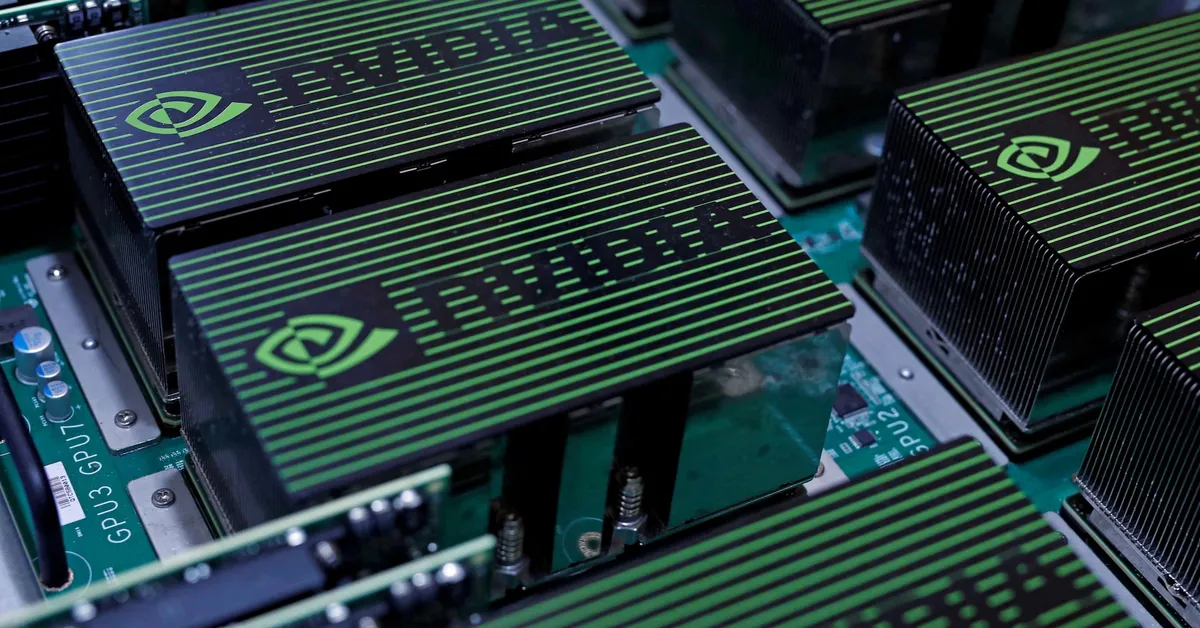
The recent developments surrounding Nvidia and its chip sales to China have raised significant eyebrows in Washington. Critics argue that these moves may provide China with a pathway to access more advanced computing power from the United States, even as both nations continue their struggle for technology supremacy. This situation highlights the ongoing tensions between the two countries, particularly in the realm of artificial intelligence (AI).
Jensen Huang, the CEO of Nvidia, recently introduced the Blackwell chip, which is touted as a significant advancement in AI technology. However, former President Donald Trump hinted that a version of this chip being sold to China could be "enhanced-in-a-negative-way," suggesting that its computing power might be reduced by 30% to 50%. Trump stated, "I think he's coming to see me again about that, but that will be an unenhanced version of the big one," referring to the potential negotiations regarding the chip's capabilities.
This development has sent shivers through Washington, where China hawks from both political parties have been vocal about their desire to keep Beijing at a technological disadvantage. Saif Khan, a former director of Technology and National Security at the White House National Security Council, expressed concern that even scaled-down versions of Nvidia's flagship chips could enable China to create world-leading AI supercomputers, potentially allowing them to leapfrog the United States in AI capabilities.
The most advanced chip that Nvidia is currently permitted to sell to China is the H20, based on the older Hopper architecture. The Blackwell platform, which Nvidia announced in early 2024, is an innovative leap forward, with the U.S. version being reported as up to 30 times faster than its predecessors. Despite this, Nvidia has not publicly confirmed the specifications or capabilities of the variant chip intended for China.
On Monday, Trump defended a controversial agreement that requires Nvidia and AMD to pay the U.S. government 15% of their revenue from sales to China. This agreement follows the Trump administration's recent approval for the export of less advanced AI chips, like the H20. The H20 was specifically developed to comply with previous restrictions set by the Biden administration and began sales to China in 2024.
Trump labeled the H20 as "obsolete," claiming that China had already acquired the technology. He stated, "So I said, 'Listen, I want 20% if I'm going to approve this for you, for the country.'" This dramatic claim reflects Trump's ongoing involvement in corporate decision-making, as he has previously pressured tech executives to invest in American manufacturing.
The U.S. Commerce Department has started issuing licenses for the sale of H20 chips to China, as confirmed by a U.S. official. The government does not believe that selling the H20 and similar chips poses a threat to national security. However, the timeline and specifics of the agreement with the chip manufacturers remain unclear.
When asked about Nvidia's commitment to the revenue-sharing agreement, a company spokesperson stated, "We follow the rules the U.S. government sets for our participation in worldwide markets." Although Nvidia has not shipped the H20 to China for several months, they are optimistic that export control rules will allow them to remain competitive both in China and globally.
In a similar vein, an AMD spokesperson confirmed that the U.S. has approved its applications to export certain AI processors to China, though they did not directly address the revenue-sharing aspect. They reaffirmed their commitment to adhering to all U.S. export controls.
China's foreign ministry reiterated its position regarding U.S. chip exports, having previously accused Washington of utilizing technology and trade measures to "maliciously contain and suppress" China. This ongoing narrative underscores the complex and often contentious relationship between the two economic superpowers.
As the situation continues to unfold, the implications of these chip sales and the U.S. government's regulatory decisions will likely play a crucial role in shaping the future of AI technology and the broader landscape of international relations.